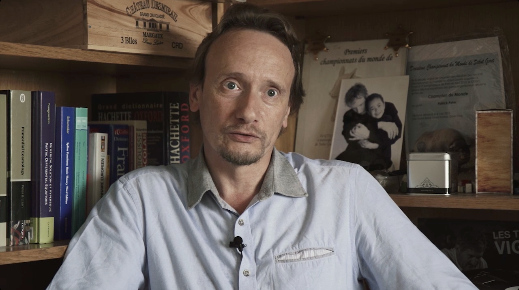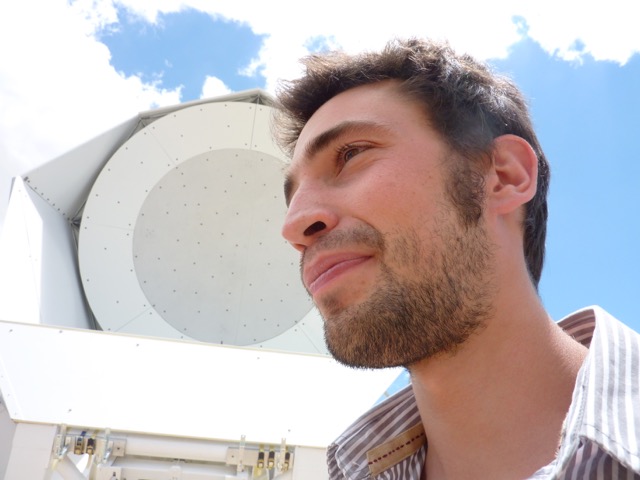|
|
|
ILP Newsletter #003 | November 2015
|
|
|
The Sophie Germain Fellowship
The Lagrange Institute, Paris has recently launched a fundraising campaign creating a postdoctoral fellowship, "The Sophie Germain Fellowship", dedicated to supporting outstanding women scientists in cosmology, fundamental physics and particle physics.
Women have made major contributions in fundamental physics and cosmology, but face many barriers to their success and, as a consequence, are strongly underrepresented, especially in senior positions. Solving the mysteries of the Universe and fundamental physics demands the best brains from more than just half of humanity. The dearth of women in physics is an urgent concern, and we want to help redress the balance.
Support this campaign to bring outstanding early-career women physicists and astronomers to the Lagrange Institute as Sophie Germain Fellows. Your support comes at a crucial career stage, when building the research portfolio that is critical for success in the competition for permanent positions. [more]
|
|
|
Calls for applications
Lagrange Thesis Fellowships
Applications for the 5th class of Lagrange thesis fellowships are now open. The new thesis fellows are expected to start in the Fall semester of 2016. The list of thesis project proposals written by members of the ILP is now available. Applications should be submitted by January 18, 2016 [more]
|
|
Lagrange Awards
The directorate and scientific council of the ILP invite expressions of interest for the Lagrange Awards. The award is intended to bring established creative leaders in the research themes of the ILP to the institute for extended periods of time, up to 6 months.
Expressions of interest should be submitted at contact[at]ilp.upmc.fr by January 18, 2016 [more]
|
|
|
News / Activities
New Arrivals
This fall we have the pleasure to welcome 8 new Lagrange Fellows among ILP's teams! A warm welcome to Johannes Braathen, Josquin Errard, Hector Gil Marin, Julia Harz, Marius Millea, Andrea Mogini, Dilia Maria Portillo and Oscar Ramos.
|
|

Patrick Peter
|
The mysteries of quantum cosmology
Patrick Peter, Deputy Director of the ILP and researcher in theoretical physics at the IAP, explains why quantum cosmology remains a mystery... [see the video]
|
|
Focus on ILP's Fellows
Eleonora Di Valentino, Postdoctoral Fellow at IAP
"I obtained my PhD from the University of Rome 'La Sapienza' in January 2015 entitled 'Constraining Fundamental Physics with Current Cosmological Data' and I joined the Institut d'Astrophysique de Paris in November 2014 as a Lagrange post-doctoral fellow of the ILP LabEx. As CORE team member of the Planck Collaboration since 2013 in LFI and 2014 in HFI, I'm working on constraining cosmological parameters and on testing with simulations the high-ℓ Plik likelihood used to analyze the recent Planck 2015 data.
My research project is focused on cosmology, mainly on Cosmic Microwave Background anisotropies, and cosmological data analysis to constrain properties of the early and recent Universe and fundamental physics, as for example nuclear rates. A major goal of my research is to constrain neutrino physics (masses, isocurvature density perturbations, effective number) and other light fundamental particles such as axions (in the hot and cold dark matter scenarios) with cosmology, using different observables and methods that offer complementary informations.
Moreover, I'm investigating the principally tensions present between the different cosmological data and models, trying to understand if they can have a physical explanation, going beyond the standard LCDM cosmological model and, for example, testing modifications of gravity, or are simply due to systematic effects."
|

Eleonora Di Valentino
Contact: valentin[at]iap.fr
List of publications:
arxiv
|

|
Josquin Errard, Postdoctoral Fellow at LPNHE
"I did my studies at the Ecole Normale Supérieure of Paris (France) and did my PhD under the supervision of Radek Stompor at Laboratoire Astroparticule & Cosmologie (Paris, France). I defended my thesis, "A hunt for CMB B-modes in the systematic contaminants jungle", in September 2012.
I worked at the Computational Cosmology Center (LBNL) in Berkeley (US) as a postdoctoral fellow in observational cosmology, where I focused on the analysis and scientific exploitation of the data coming from the new generation CMB B-modes experiment called POLARBEAR. With my collaborators, we did the first direct measurement of CMB B-modes produced by gravitational lensing. This important result gave a strong support to our current understanding of cosmic history, opening new observational windows onto the physics of the early and late Universe.
I joined ILP in September 2015 with the project of constraining the dark sector (dark matter, dark energy) and cosmic inflation by combining different and complementary observational tools, in particular CMB polarization (using data from new and future telescopes such as Polarbear-II, Simons Array, Stage-IV, LiteBIRD) and optical lensing with HSC and LSST.
In addition, I worked on designing and optimizing future CMB telescopes. My collaborators and I focused on different systematic effects, in particular the astrophysical foregrounds, the gravitational lensing and the atmospheric contamination for ground-based projects."
|
|
|
|
|
|